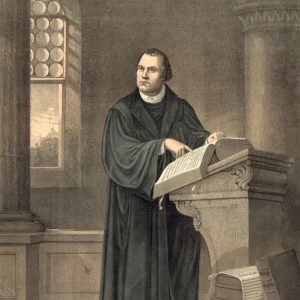The purpose of this message was to provide pastoral encouragement to persecuted Christians by comforting, challenging, and proclaiming the sure and certain Christian hope, together with the assurance that in Christ they were sharing in the sovereign God’s method of totally overcoming the forces of evil in all its manifestations. Revelation is also an evangelistic appeal to those who are presently living in the kingdom of darkness to enter the Kingdom of Light.
17 The [Holy] Spirit and the bride (the church, the true Christians) say, Come! And let him who is listening say, Come! And let everyone come who is thirsty [who is painfully conscious of his need of those things by which the soul is refreshed, supported, and strengthened]; and whoever [earnestly] desires to do it, let him come, take, appropriate, and drink the water of Life without cost
Revelation 22:17
Background and Date. Evidence within Revelation indicates that it was written during a period of extreme persecution of Christians, which possibly was that begun by Nero after the great fire that nearly destroyed Rome in July of A.D. 64 and continued until his suicide in June of A.D. 68. In this view, the book thus was written before the destruction of Jerusalem in September of A.D. 70, and is an authentic prophecy concerning the continuing suffering and persecution of Christians, which would become even more intense and severe in the years ahead. On the basis of isolated statements by the early church fathers, some interpreters date the book near the end of the reign of Domitian (A.D. 81–96), after John had fled to Ephesus.
Occasion and Purpose. Under the inspiration of the Spirit and the Old Testament, John had no doubt been reflecting on the horrifying events occurring both in Rome and Jerusalem when he was given “the prophecy” of what was impending—the intensification of the spiritual warfare confronting the church (1:3) perpetrated by an anti-Christian state and numerous anti-Christian religions.
Jack W. Hayford, ed., Spirit Filled Life Study Bible

